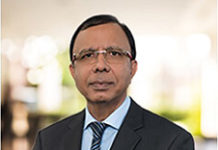Botswana is centrally located in Southern Africa, land-linked with Namibia, South Africa, Zambia and Zimbabwe. Botswana’s macroeconomic policy framework is anchored in adherence to the rule of law, high profitability index, macroeconomic stability, and high literacy rate. The country is an attractive and desirable location for conducting business. In the 2022 World Bank’s Ease of Doing Business, Botswana was ranked 87th out of 190 nations, indicating a generally favourable business environment. With a GDP per capita of USD 6,581 in 2022 (Statistics Botswana), Botswana is among the highest in sub-Saharan Africa. Botswana prides itself on abundant natural resources, particularly diamonds, which generate more than two-thirds of its export revenue.
Botswana has much to offer investors from the European Union (EU) and from across the globe looking for opportunities in Africa, particularly Southern Africa given its geographic location.
The country also prides itself on being one of Africa’s most politically stable and economically prosperous. As such, it offers a safe and welcoming environment for foreign investments featured by:
- Strong economic growth: Botswana has one of the fastest-growing economies in Africa, with an average annual growth rate of 4% over the past decade;
- A business-friendly environment: Botswana has implemented several policies and reforms to attract foreign investors, including tax incentives, streamlined bureaucratic procedures, and an efficient legal system;
- A strategic location: Botswana is at crossroads in Southern Africa, making it a gateway to the region;
- A skilled workforce: Botswana has a highly educated and skilled workforce, with a literacy rate of over 88%;
- Abundant natural resources: Botswana has significant reserves and not only diamonds but also copper, coal, salt ash and other minerals;
- A strong legal system: Botswana has a robust legal system based on English common law, which provides certainty and protection for investors and businesses.
- A diversified economy: Botswana has a diversified economy, with sectors such as tourism, agriculture and manufacturing contributing to the country’s growth;
- A low corruption: According to Transparency International, Botswana has a reputation for being one of the least corrupt countries in Africa as well as among the least corrupt countries in the world.
To facilitate the attraction of Foreign Direct Investment (FDI) into Botswana, in 2006 the Government of Botswana set up Global Expo Botswana (GEB). GEB is the country’s premier International multi-sectoral business-to-business exhibition managed by the Botswana Investment and Trade Centre (BITC) on behalf of the Government of Botswana. The annual expo is held towards the year’s end, attracting exhibitors and business people from the region and globally. The main aim of this Expo is to increase FDI, exports and joint ventures between local and international companies. From 11th-14th
October 2023, the European Union, in collaboration with the Government of Botswana, held the first-ever Europe-Botswana Business Forum (EBBF) alongside GEB. These events presented an opportunity to promote business opportunities in Botswana. The event attracted about 400 participants from Europe, Botswana and other African countries. The interactive business forum featured business-to-business sessions, workshops and seminars focusing on five sectors with potential growth: Health and Pharmaceuticals, Financial and Business Services, Automotive and E-mobility, Digital and Innovation, and Mining.
Economic diversification is a top priority for Botswana. The Government has adopted policies and strategies that will support the diversification and structural transformation of the economy and reduce over-dependence on the minerals sector. The fundamental purpose of these policies is to develop the private sector and strategic sectors such as agriculture, tourism, automotive, downstream mining beneficiation, manufacturing, and financial and business services with growth prospects. A clear testament is the ongoing work on the energy transition. Botswana adopted an Energy Master Plan that sets out various goals for rural electrification involving using renewable energy. Multiple programmes are set out as follows: promotion of solar energy by the Botswana Government; integration of grid and non-grid technologies; encouragement of research and development about renewable energy sources; identification of an appropriate institutional framework for rural electricity using renewable energy; development of strategies for removing the barriers to the widespread use of renewable energies; promotion of women and children’s welfare through the provision of PV power generation (lighting).
More about doing business in Botswana: https://www.bitc.co.bw/
![[:fr]BOTSWANA 1[:]](https://perspectives-cblacp.eu/wp-content/uploads/2024/02/BOTSWANA-1-696x240.png)

